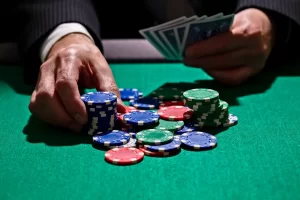It is not a secret that winning big jackpots has a psychological impact. People who win these massive sums of money often experience a lot of stress and anxiety, and feel very depressed. The best way to prevent this is to understand the long-term effects of these types of wins.
Dopamine release
Dopamine has been linked to some of the most exhilarating moments of our lives. If you’re lucky enough to hit the jackpot, the rewards can be overwhelming. It’s no wonder so many people wind up spending more than they had to. But dopamine isn’t the only thing that can get your adrenaline flowing. A good ol’ fashioned cocktail can help. There are also plenty of pranksters who’ll tell you how they got their big break, and the best part is that you can’t tell if they’re having a prank or a genuine stroke of good fortune.
If you’re interested in winning big, there’s no better time than now. With the lottery jackpots now in the millions, there’s no telling how much more people are going to spend in the next few years.
Quality of life
Although the lottery might be a dead cert for the title of most boring job in the world, one does not need a lucky ticket to enjoy a life of luxury. The key is to not be too ambitious. Having a plan in place and a little foresight can help make you more money, less stress and a better partner. A recent study on the quality of life after winning the big jackpot has been released, courtesy of Northwestern University and the University of Massachusetts. It found that winning the big bucks did not have any negative effects on your quality of life. In fact, a large number of winners stuck to their jobs, even when their hours were cut back to a reasonable level.
Gambling addiction
The psychological effects of winning big jackpot on gambling addiction can be overwhelming. But that doesn’t mean it’s all about the money. For many people, gambling is a fun activity, but it can also lead to problem gambling.
Researchers from the University of Cambridge have begun studying the brain’s responses to gambling games. They hope this research will help identify the causes of gambling addiction. And they also say it could lead to better treatments.
Researchers used fMRI to measure neural responses to gambling game outcomes. Subjects were recruited from advertisements around the University. One of the subjects had to drop out due to claustrophobia.
Researchers then measured brain activity during a task involving a slot machine. They found that the rapid spin of the wheels increased gamblers’ propensity to continue betting.
Reward deficiency model
The reward deficiency model of addiction is based on the hypothesis that most people who are susceptible to addiction have an underactive brain reward system. This means they are likely to find reward-stimulating activities such as gambling or alcohol consumption appealing and pleasurable. Despite their reward-seeking tendencies, they often fail to weigh the costs of such activity. In fact, the most problematic gamblers may struggle with decisions involving immediate rewards such as a big win.
It’s no surprise then that reward deficiency research has been a major focus of neuroscience labs for years. Several studies have uncovered blunted neural responses to appetitive cues. Some have even gone as far as to suggest that the presence of a particular dopamine D2 receptor gene variant is a risk factor for developing multiple addictions.
Long-term effects
Studies have shown that winning a big lottery prize does not cause people to become less happy. In fact, they have been found to be more satisfied. However, studies on the psychological effects of winning the lottery need more work.
One study in Britain looked at the lives of 137 lottery winners and compared them to a control group of 137 non-winners. They found that lottery winners were more satisfied with their lives than the control group.
The same study also surveyed 29 people who had been injured in an accident. These victims received a payout of $50,000 to $1 million. This was a smaller sample than the initial study, but it was enough to get a more detailed analysis.
Researchers interviewed 22 lottery winners. They asked them to rate how happy they felt. Winners generally scored higher on day-to-day activities such as eating breakfast, chatting with a friend, and laughing at a joke.




